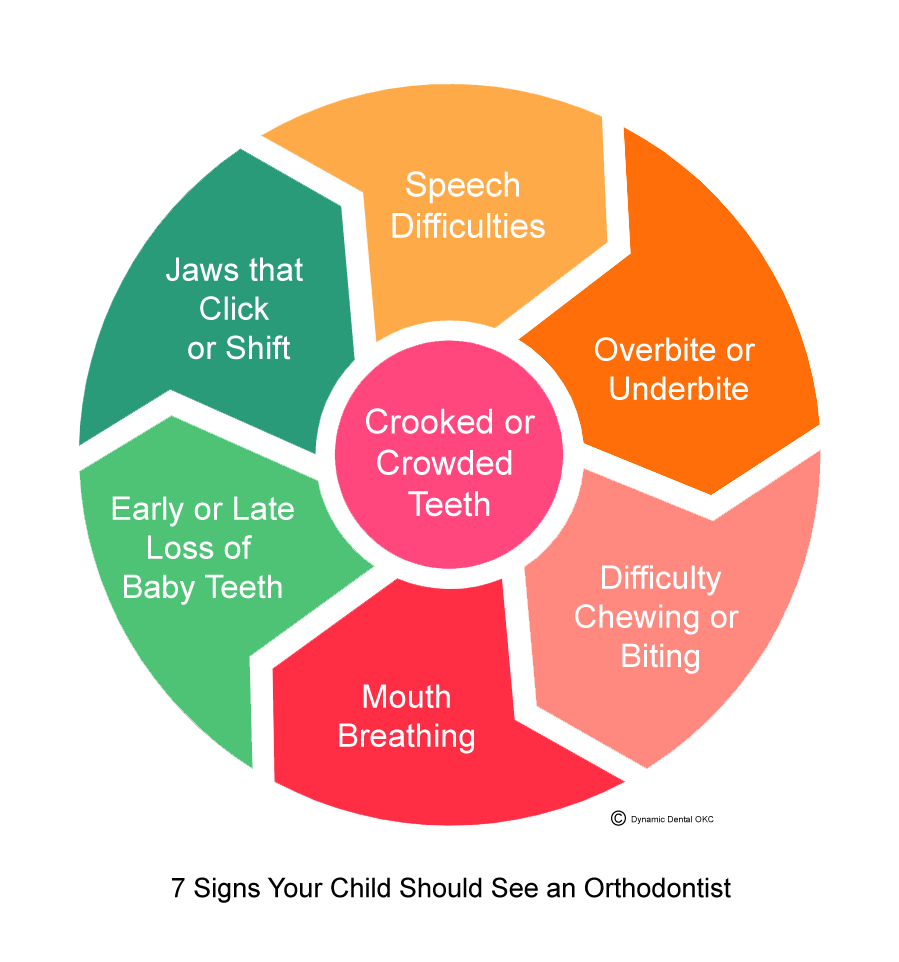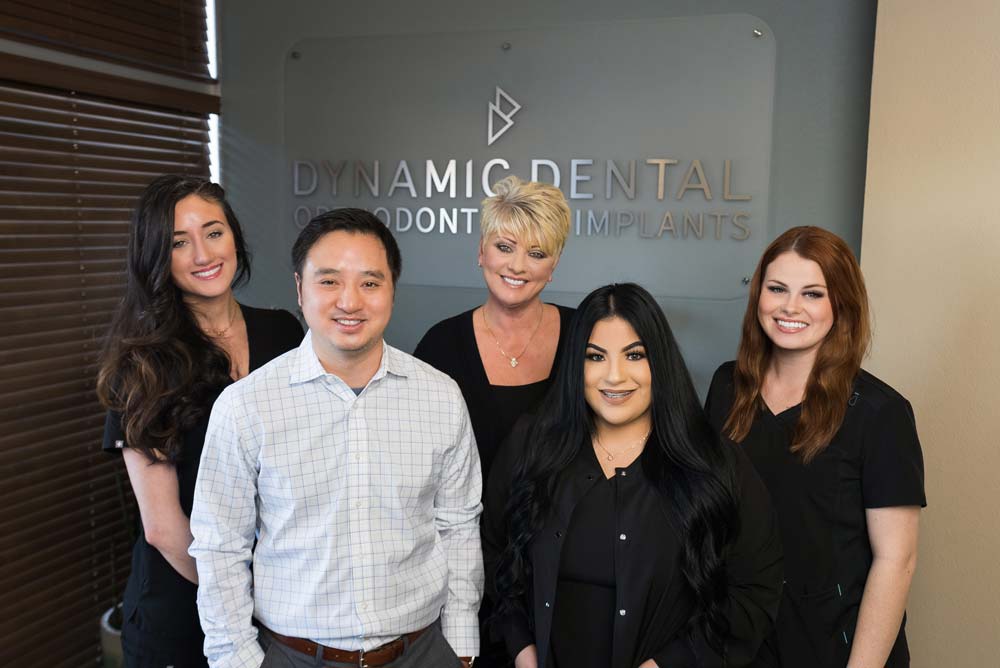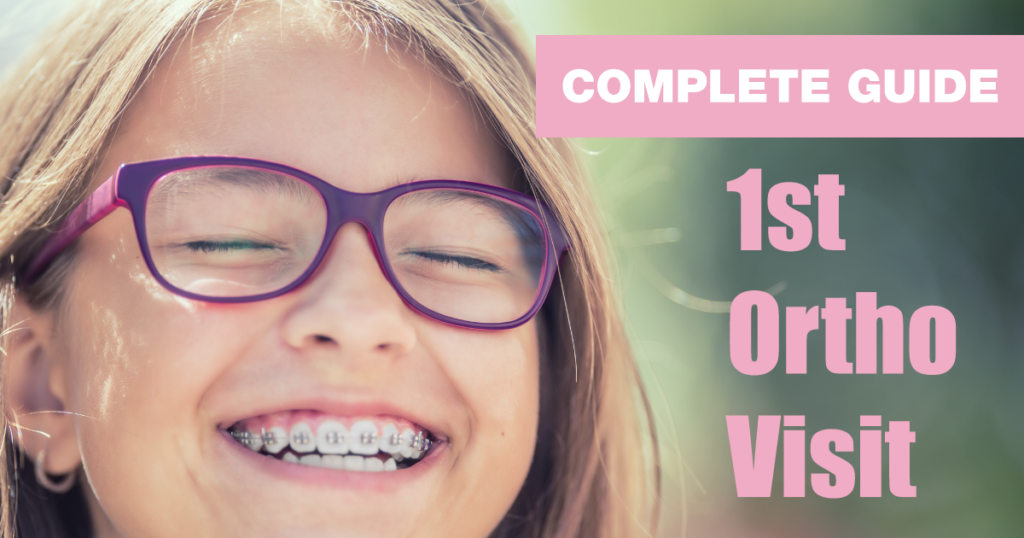Share Article:
The Complete Guide to Your Child’s First OKC Orthodontist Visit
Home »
Hey, I’m Dr. Bruce, a top orthodontist in OKC, and I’m thrilled to walk you through this comprehensive guide on your child’s first orthodontist visit. I’ve curated seven essential tips and insights along with 7 signs to look out for to make this milestone experience a positive one for both you and your child. From prepping your child for the visit to understanding the benefits of orthodontic care, our ultimate guide covers every aspect of their first appointment.
The Best Time to Take your Child to the Orthodontist

The best time to take your child for their first orthodontist visit is age 7. The American Association of Orthodontists (AAO) highly recommends this age, and you know what? It’s not just a random number!
By age 7, your child’s jaw and permanent teeth are still developing, which means we can spot any potential issues early on. And trust me, catching things early can save a whole lot of trouble down the road! We can tackle overcrowding, misalignment, and bite problems with ease, using their natural growth to our advantage.
Remember, this is just a recommendation and not a hard guideline. I work with patients of all ages and it’s never too early or late to visit your local orthodontics practice.
7 Signs Your Son or Daughter Needs to See an Orthodontist
I get asked all the time by parents about some signs to look out for in their children. There are 7 key signs that may indicate your child could benefit seeing an orthodontist. Identifying these signs early on can lead to timely orthodontic intervention, preventing potential dental issues from becoming more complex. From misaligned teeth to difficulties with chewing, we’ll explore these indicators carefully to determine the best course of action for your child’s oral health and overall well-being.

Here are 7 signs that may indicate your child could benefit from seeing an orthodontist:
- Crooked or Crowded Teeth: If your child’s teeth appear crowded or misaligned, it may be time to consult an orthodontist to assess their dental development.
- Overbite or Underbite: An overbite, where the upper front teeth significantly overlap the lower teeth, or an underbite, where the lower teeth protrude in front of the upper teeth, can impact their bite alignment and may require orthodontic evaluation.
- Difficulty Chewing or Biting: If your child has difficulty chewing certain foods or frequently experiences discomfort while biting, it could signal a need for orthodontic intervention.
- Mouth Breathing: Continuous mouth breathing, especially during sleep, may indicate potential orthodontic issues that an orthodontist can assess.
- Early or Late Loss of Baby Teeth: Premature loss of baby teeth or delayed eruption of permanent teeth could be signs of underlying dental concerns that warrant orthodontic examination.
- Jaws that Click or Shift: If your child’s jaws click or shift when opening or closing their mouth, it may indicate alignment issues that an orthodontist can address.
- Speech Difficulties: Speech impediments or difficulties may be associated with dental or jaw alignment problems, which an orthodontist can evaluate and treat.
Remember, every child’s dental development is unique, and early evaluation by an orthodontist can help identify potential issues and recommend the most appropriate treatment if needed. If you observe any of these signs in your child, don’t hesitate to schedule a consultation with an orthodontist to ensure their oral health and overall well-being.
7 Tips To Prepare your Kids for Going to the Orthodontist

Preparing to take your child to the orthodontist can be both exciting and a bit overwhelming. As a parent, you want to ensure the best possible experience for your little one and make the most of the appointment. To help you navigate this journey smoothly, I’ve compiled seven essential tips to consider before heading to the orthodontist. From knowing what to expect during the consultation to preparing your child for the visit, these tips will empower you to make the most of the appointment and set your child on the path to a healthy and confident smile. Let’s dive in and make this orthodontic journey a positive and rewarding one for both you and your child!
Tip 1: Be ready to answer their questions
Children may have curiosity and apprehension about the upcoming visit, so it’s essential to create a comfortable environment for open communication. Addressing their questions and involving them in the decision-making process will foster trust and cooperation, making the orthodontic experience a positive and empowering one for your child.
Tip 2: Listen to their concerns
Encourage your child to express any concerns or queries they may have about the orthodontic process. Be honest and reassuring in your responses, providing age-appropriate explanations to alleviate any anxieties they may be feeling.
Tip 3: Remind them of all the benefits
Orthodontic treatment offers numerous benefits that go beyond achieving a straight and beautiful smile. From improved oral health to enhanced speech and confidence, these benefits are sure to inspire excitement about the journey ahead.
Tip 4: Reward them with a treat
After the orthodontic visit, consider treating your child to a special reward to celebrate their bravery and cooperation.
Tip 5: Tell them they are not alone
Let your child know that getting braces is a common experience shared by many kids and adults. Braces are like a unique club where everyone works together to achieve their dream smiles, and they’re in excellent company!
Tip 6: Reassure them that it’s not forever
Help ease any apprehensions about wearing braces by reassuring your child that it’s a temporary journey with incredible long-term benefits. Before they know it, they’ll have a dazzling smile, and braces will be a distant memory.
Tip 7: Introduce them to their orthodontist
Visit your orthodontist’s “Meet the Doctors” page where your child can get to know who will be providing them care. By sharing photos and personal tidbits with them, their orthodontist will become much more relatable and less intimidating, creating a warm and welcoming experience for your child.
Bright Smiles Ahead
From preparing your child for the visit to understanding the benefits of orthodontic care, we’ve covered every aspect to make this milestone experience a positive and empowering one for both you and your child.
Remember, age 7 is the ideal time to bring your child for their first orthodontist visit. By catching potential issues early, we can use their natural growth to address concerns like overcrowding, misalignment, and bite problems with ease.
Additionally, the 7 signs I’ve shared can help you identify if your child may benefit from braces. Early intervention can prevent dental issues from becoming more complex and ensure their oral health and overall well-being.
To prepare your kids for the orthodontist, I’ve provided 7 essential tips. By being ready to answer their questions, listening to their concerns, and reassuring them that braces are not forever, you can create a positive and rewarding orthodontic journey for your child.
Note: Orthodontics aren’t just for kids – we have very popular orthodontic treatments for adults.
If you have any further questions don’t hesitate to reach out. Let’s embark on this journey to a confident and radiant smile for your little one’s bright future!
In Good Health,
Dr. Joshua Bruce, DDS
BOARD CERTIFIED ORTHODONTIST


